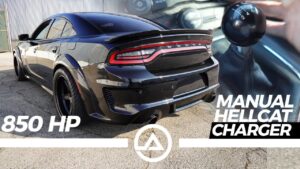Can a deep cycle battery be used in a car? The simple answer is yes, but let’s delve into the details. Many car owners wonder if they can harness the power of a deep cycle battery to meet their car’s energy needs. And it’s a valid question. Deep cycle batteries are known for their ability to provide a steady and sustained flow of power over a longer period of time. But can this type of battery truly handle the demands of a car? In this article, we’ll explore the compatibility of deep cycle batteries with cars and provide you with the insights you need to make an informed decision. So, let’s dive in!
Can A Deep Cycle Battery Be Used In A Car
When it comes to car batteries, there are a few different types to choose from, each designed for specific purposes. One type that has gained popularity in recent years is the deep cycle battery. Deep cycle batteries are commonly used in applications that require a steady and sustained power supply over a long period of time, such as marine vehicles, RVs, and solar power systems. But can a deep cycle battery be used in a car? In this article, we will explore this question in detail, discussing the differences between deep cycle batteries and automotive batteries, their strengths and limitations, and the factors to consider before using a deep cycle battery in a car.
The Difference Between Deep Cycle Batteries and Automotive Batteries
Before we delve into whether a deep cycle battery can be used in a car, let’s first understand the basic differences between deep cycle batteries and automotive batteries. While both types are designed to store and deliver electrical energy, they have distinct characteristics:
- Chemistry: Deep cycle batteries are typically made with thicker and heavier lead plates, which allows for a greater capacity to store energy. Automotive batteries, on the other hand, are constructed with thinner plates to provide high bursts of power required to start the engine.
- Usage: Deep cycle batteries are designed to deliver a slow and steady discharge of power over an extended period, making them ideal for applications that require a long-lasting power source. Automotive batteries, however, are optimized for short, high-intensity bursts of power to start the engine and power the vehicle’s electrical systems during operation.
- Recharging: Deep cycle batteries are designed to withstand deeper discharges and are better equipped to handle regular deep cycling. They can be discharged to a much lower level than automotive batteries without causing damage. Automotive batteries, on the other hand, are not designed to handle deep discharges and perform best when kept at higher charge levels.
The Strengths of Deep Cycle Batteries
Deep cycle batteries offer several advantages that make them a popular choice for certain applications:
- Longevity: Deep cycle batteries are built to withstand multiple charge and discharge cycles, giving them a longer lifespan compared to automotive batteries.
- Deep Discharge Capability: Deep cycle batteries can be discharged to a much lower level without causing damage, allowing for a greater utilization of stored energy.
- Reliability: Deep cycle batteries are known for their consistent and reliable power output over an extended period of time.
- Versatility: Deep cycle batteries can be used in a variety of applications beyond automotive use, including marine vehicles, RVs, golf carts, and renewable energy systems.
The Limitations of Deep Cycle Batteries
While deep cycle batteries have many strengths, they also come with a few limitations:
- Lower Cranking Power: Deep cycle batteries are not designed to provide the high bursts of power needed to start a car engine. This means that if you rely solely on a deep cycle battery to start your car, you may experience difficulty or a slow start, especially in colder temperatures.
- Size and Weight: Deep cycle batteries are generally larger and heavier than automotive batteries, which may pose fitting and installation challenges in some vehicles.
- Cost: Deep cycle batteries tend to be more expensive than automotive batteries due to their construction and specialized design.
Factors to Consider Before Using a Deep Cycle Battery in a Car
If you are considering using a deep cycle battery in your car, there are a few important factors to take into account:
- Compatibility: Check your car’s electrical system and consult with a professional to ensure that it is compatible with a deep cycle battery. Some vehicles may require modifications or additional equipment to safely accommodate a deep cycle battery.
- Power Requirements: Evaluate your power requirements and determine if a deep cycle battery can meet your needs. Consider factors such as the vehicle’s starting power demands, electrical accessories, and any modifications you may have made to the car.
- Space and Weight: Deep cycle batteries are generally larger and heavier than automotive batteries. Ensure that your car has adequate space and can safely handle the additional weight.
- Maintenance: Deep cycle batteries may require different maintenance procedures compared to automotive batteries. Familiarize yourself with the specific requirements of the deep cycle battery you are considering and ensure you can meet them.
- Climate: Cold temperatures can significantly impact the performance of deep cycle batteries. If you live in an area with harsh winters, consider the effects of temperature on the battery’s starting power.
While it is technically possible to use a deep cycle battery in a car, it is important to consider these factors and assess whether a deep cycle battery is the right choice for your specific vehicle and driving needs. Consulting with a knowledgeable professional can provide valuable guidance and ensure a successful integration of a deep cycle battery into your car.
Simple Explanation of "Starting" vs. "Deep Cycle" Batteries
Frequently Asked Questions
Can a deep cycle battery be used in a car?
Yes, a deep cycle battery can be used in a car, but it is important to consider certain factors before doing so.
What is the difference between a deep cycle battery and a regular car battery?
Deep cycle batteries are designed to provide a steady amount of power over a long period of time, making them ideal for applications that require continuous power, such as marine or RV use. Regular car batteries, on the other hand, are designed to deliver a high burst of power to start the engine.
Can a deep cycle battery start a car?
While a deep cycle battery can technically start a car, it may not be the most efficient option. Deep cycle batteries are not designed to deliver the high starting currents required to crank the engine of a car, so they may struggle to provide the necessary power.
What are the advantages of using a deep cycle battery in a car?
Using a deep cycle battery in a car can offer several advantages, such as a longer lifespan compared to regular car batteries. Deep cycle batteries are also better at handling deep discharges, which means they can be drained and recharged repeatedly without significant damage.
Are there any drawbacks to using a deep cycle battery in a car?
One of the main drawbacks of using a deep cycle battery in a car is its lower cranking power compared to regular car batteries. This can result in slower engine starts, especially in colder temperatures. Additionally, deep cycle batteries are generally larger and heavier than regular car batteries, which may require modifications to the car’s battery compartment.
What should I consider before using a deep cycle battery in my car?
Before using a deep cycle battery in your car, it is important to check your car’s electrical system requirements and consult the manufacturer’s recommendations. Ensure that the deep cycle battery you choose has the necessary cranking power and fits properly in your car’s battery compartment. It can also be beneficial to consult with a professional to determine the best battery option for your specific needs.
Final Thoughts
A deep cycle battery is not recommended for use in a car. While it may be tempting to use a deep cycle battery due to its longer lifespan and capacity to handle repeated discharging, it may not provide the necessary starting power for a car engine. Deep cycle batteries are designed for applications that require sustained power over a longer period, such as RVs, boats, or solar systems. Car batteries, on the other hand, are specifically designed to provide high starting power needed to start a vehicle. Therefore, it is advisable to use a car battery in a car to ensure reliable engine starting and overall performance. Can a deep cycle battery be used in a car? It’s best to stick with a car battery for optimal performance and reliability.



